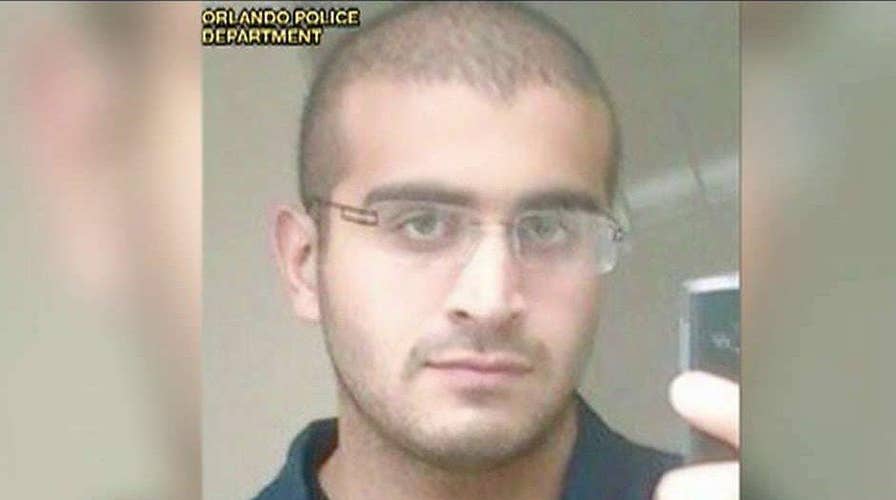Orlando gunman's 911 call: What DOJ didn't want us to see
Under pressure from GOP leaders, the Justice Department reversed itself and released a full, uncensored transcript of the Orlando terrorist's 911 call on the night of the massacre. Catherine Herridge reports
Holed up in an Orlando nightclub and surrounded by police, Omar Mateen told a hostage negotiator that he was angry about the death of a top Islamic State operative, according to recently released transcripts of their phone conversations during Mateen’s massacre earlier this year.
The new details of the conversations, released by Orlando Police last week, show Mateen had more than a passing interest in Islamic State, counterterrorism experts said. He specifically singled out the death of Abu Wahib, one of the more visible leaders of the terror group, as one of the main motivations for his attack. Abu Wahib was killed in an airstrike in Iraq just weeks before Mateen opened fire at the Pulse nightclub in June in an attack that killed 49 people and wounded 53. Mateen died in a shootout with police.
“Yo, the airstrike that killed Abu Wahid a few weeks ago—That’s what triggered it, okay?” he told the police negotiator, an apparent reference in the transcript to the Islamic State commander.
Islamic State supporters in the U.S. more commonly cite as inspirations people like Islamic State leader Abu Bakr al-Baghdadi or Anwar al-Awlaki, the American-born al Qaeda recruiter who was killed in a U.S. drone strike in 2011. While talking to the 911 operator the night of the Orlando shooting, Mateen also pledged allegiance to Mr. Baghdadi, according to a partial version of transcripts released by the Federal Bureau of Investigation in June.
It is unclear when precisely Mateen, 29, was radicalized, though he had aroused the FBI’s suspicion after making claims of ties to terrorists in 2013.
In the series of phone calls with the negotiator during the Orlando massacre, Mateen also railed against U.S. airstrikes in Syria and Iraq, saying they were killing women and children.
“What am I to do here when my people are getting killed over there. You get what I’m saying?” he said.
The transcripts also show Mateen resisting the negotiator’s calls to turn himself in, and vowing that there were more attacks coming.









































